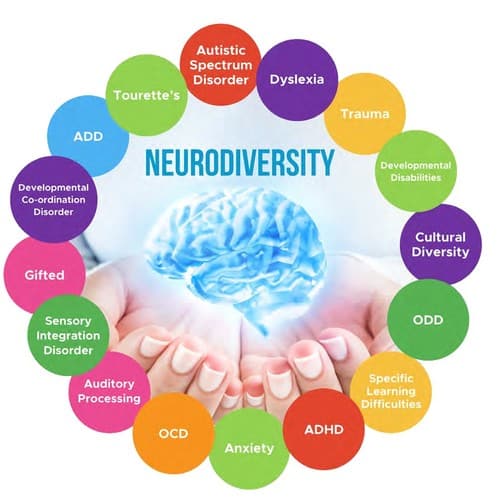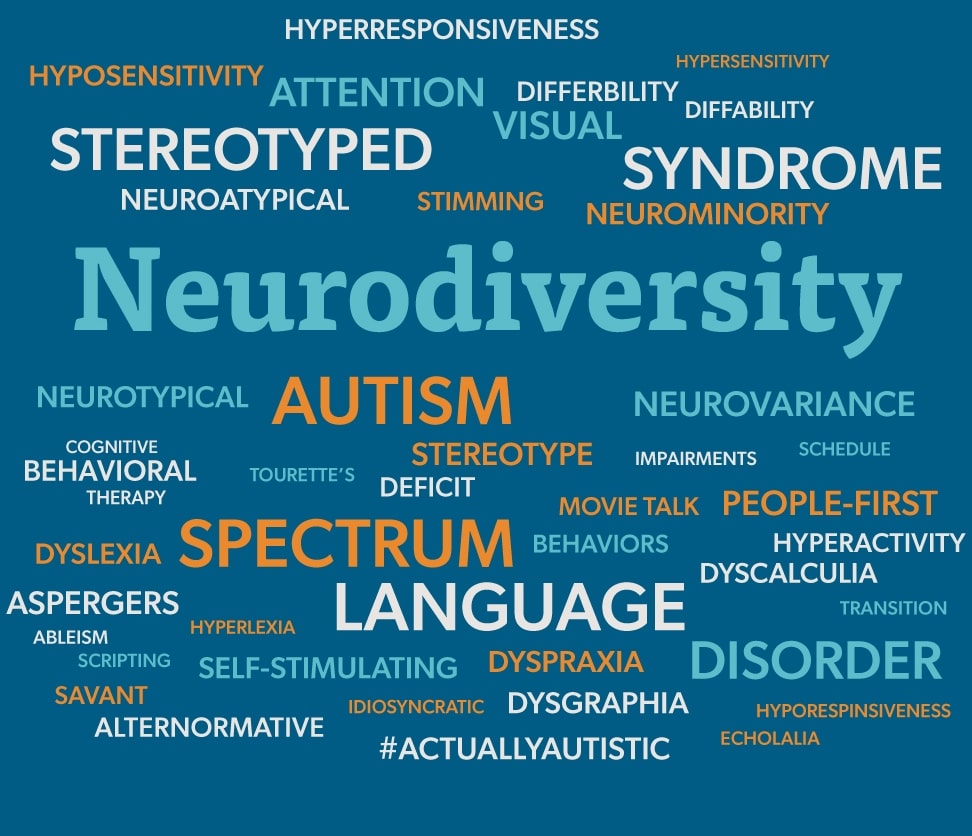When Debbi and Matthew Scarborough attempted to find a school for their
son in 2007, there were no viable options in the Atlanta area for an 
Since then, Cumberland has grown to over 100 students with an exciting and challenging curriculum that recognizes the educational needs of each student. We respect the learning diversity of each student. This is done through cooperative learning and active hands-on techniques that are integrated into all subject areas along with co-curricular activities. Our best practices curriculum infuses the creative arts as well as problem-solving, social skills, critical thinking, and decision-making skills. We understand and appreciate the unique perspectives of neurodiverse students in order to provide them with the support and accommodations they need.
One prominent characteristic of neurodivergent students is sensory sensitivity. These children may have heightened or diminished sensitivity to various sensory stimuli such as light, sound, touch, taste, and smell. What may seem insignificant or unnoticeable to others can be overwhelming and distressing to them. For instance, fluorescent lighting or background noises in a classroom setting might be unbearable for some autistic children, affecting their ability to concentrate or engage in learning activities. Our faculty, staff, and counselors consider the individual needs of our students as they plan for each lesson.
Moreover, neurodivergent children may experience difficulties in processing and integrating sensory information. They might focus intensely on specific details, perceiving the world in a highly detailed, analytical manner. This attention to detail can be an asset in certain contexts, such as problem-solving or pattern recognition, but it may also make it challenging to perceive the “bigger picture” or understand social cues that rely on subtle nuances.
Additionally, our neurodivergent students may experience challenges in understanding and interpreting social cues and non-verbal communication. Facial expressions, gestures, and body language, which come naturally to many neurotypical individuals, can be confusing or ambiguous to autistic children. This can lead to difficulties in recognizing and responding appropriately to others’ emotions or intentions, affecting their social interactions and relationships. Our faculty knows this each day and takes this into account as another piece of our curriculum to help grow our students’ social awareness.
Our student population often prefers routine and predictability. They thrive in structured environments where they can anticipate what will happen next. Changes, even minor ones, can be unsettling and trigger anxiety or distress. Consequently, their perception of the world revolves around creating a sense of order and predictability, seeking stability and consistency in their surroundings.
To support our neurodiverse students effectively, it is crucial to create inclusive environments that respect and accommodate their individual differences. This is why we provide breaks for our students. By acknowledging and valuing their unique perspectives, we can promote their well-being, foster their strengths, and help them navigate and thrive in a world that may sometimes feel overwhelming.
Each day we continue to live out Matthew and Debbi Scarborough’s vision as we shape, develop, and enhance abilities, giving encouraging and appropriate guidance with realistic expectations so that our students grow into happy, confident, cooperative, and productive members of society.
We invite you to be a part of this exceptional community whether you want to take a tour, participate in our fundraising events, become a volunteer, or help us as a financial supporter! Please contact our admissions department at admissions@cumberlandacademy.org.

